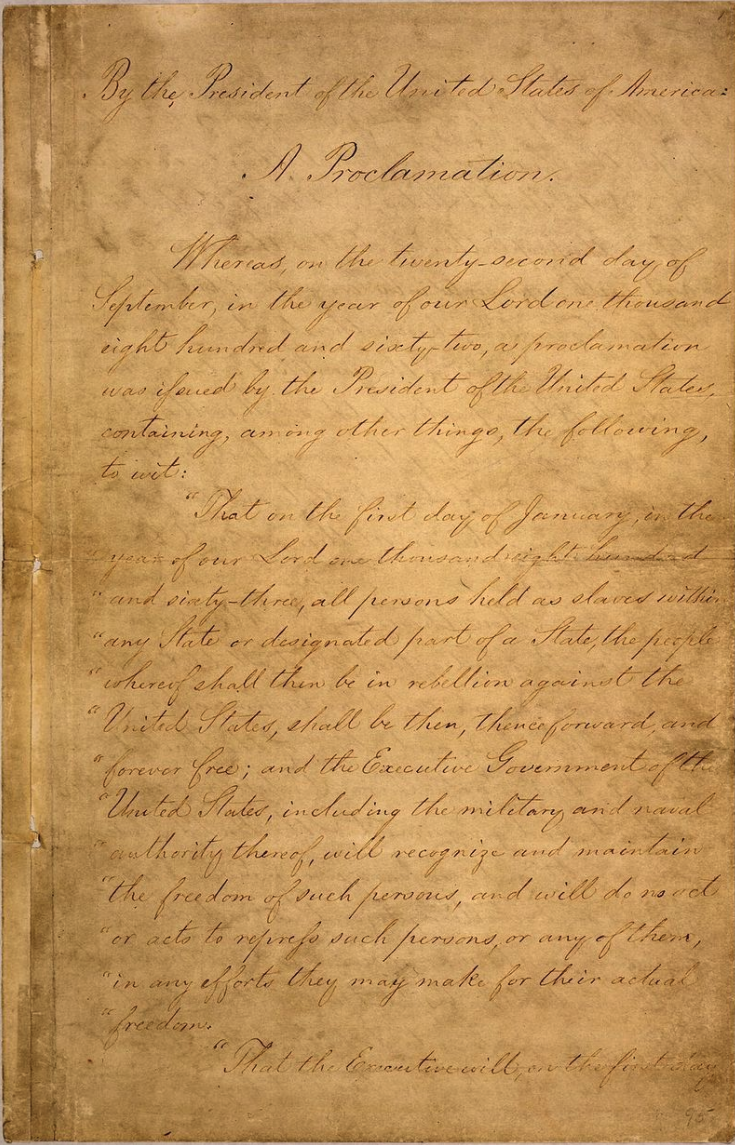
The first page of Lincoln's original Emancipation Proclamation declaring “that all persons held as slaves” within the rebellious areas “are, and henceforward shall be, free.” Lincoln’s bold step was a military measure by which he hoped to inspire the slaves in the Confederacy to support the Union cause. Because it was a military measure, the proclamation was limited in many ways. It applied only to states that had seceded from the Union, and left slavery untouched in the border states. Although the Emancipation Proclamation did not end slavery, it did fundamentally transform the character of the war. Henceforth, every advance of Federal troops expanded the domain of freedom. Moreover, the proclamation announced the acceptance of black men into the Union Army and Navy. By the end of the war, almost 200,000 black soldiers and sailors had fought for the Union and their own freedom. National Archives.